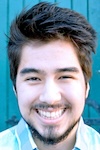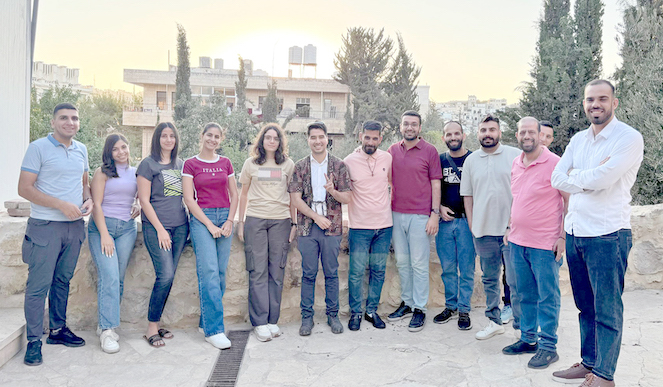
Kenji Kuramitsu
I last wrote to you in January 2024, as Gaza lay under a genocidal siege sponsored by our tax dollars. A welcome reprieve of a ceasefire has just been declared, but I must tell you: The situation in Palestine feels worse than it has ever been, both in the devastated strip and the occupied West Bank. My Sansei father recently spent two weeks with me there, as I reported, collaborated with educators and offered mental health training and psychoeducational groups.
Life here has become harsher since our last visit. Gaza has been annihilated. Meanwhile, the thinning archipelagoes of Palestinian life in occupied Jerusalem and the West Bank have become more brutal and humiliating places.
One single power, insisting on Jewish supremacy, rules from the river to the sea, operating a merciless regime of border crossings, prisons and checkpoints, outposts and settlements — all euphemisms, in the end, for racism, violence and death.
We witnessed legion scenes of heartbreak and oppression. In Umm el-Kher, we confronted bloodshed conjured by settler hands and my funds. Settler youths screamed toward the barbed wire encircling the village, children wielded as weapons — “human shields,” my friend grimly joked.
At Bethlehem University and the Wi’am Center, brilliant and tenacious young people confided that their lives have narrowed since Oct. 7 amid collective punishment: random beatings and detentions, shuttered markets, the tightening of the noose. Impossible decisions loom: Do we stay or try to get out? In group, women laugh, weep and rage, recounting the loss of hope for future generations.
My dad becomes my safe place at the end of each day, making an Orphic descent — leaving his own home out of love for me. Each night, we comforted one another and sparred and grieved and tried to put into words the oceanic perversity around us.
Our talks, lying in beds next to one another, and the daily journals I pen, helped to trap the shock of death into a grammatical register — etching the trauma, mercifully, in the lowercase. One evening, I asked about his uncle in Tule Lake: Can you imagine if the world had raised its voice against what happened to us back then? Don’t we have to speak out for others now?
Being here makes you wonder what it would have been like if Nikkei had never left camp. Yes, the analogy stumbles: Nikkei are immigrants, not natives — racial and settler violence diverge — the very question launders our complicity as citizens of empire.
But the comparison asserts itself again and again with a visceral force: “Just like camp,” my dad whispered, sighting the watchtowers seven years ago. Barbed wire suggests barbed wire, which is why every honest cataloguer of this atrocity instinctively limps toward the nearest historical analogue: Jim Crow, Native Reservations, Apartheid, Warsaw Ghetto.
Even forbidden associations present themselves, as during our visit to the Zionist state’s Holocaust museum: What does it mean to memorialize one genocide while conducting another? All of these histories are connected. More urgently, as Noura Erakat observes, the imperial violence we inflict abroad always boomerangs back home.
You recall that during the reparations movement, it was concluded that our catastrophe was driven by “race prejudice, war hysteria and a failure of political leadership.” Surely, a fourth pillar loomed: apathy.
Just as ordinary people ignored the cries of their Jewish neighbors during the Shoah, they glanced up and returned to their sandwiches as Nikkei were carted off to camp; many of us continue to look away from Palestine.
My father and I returned home, resolving to not avert our gaze. We cannot let the Nakba pass to yet another generation. Whatever our entry point, the Japanese American community has a role to play in furthering Palestinian liberation.
I again plead for our chapters and National JACL to cut ties with discredited Zionist institutions like ADL and AJC. Let us attend cultural exchanges and protective presence trips to the West Bank and engage in long-term community partnerships — like that begun in 2009 by Rev. Michael Yoshii and Wadi Fouqin village.
We can join in civil disobedience, boycott, divest, sanction and strike back — “each from [our] position and with the tools [we] possess” — to reject the genocide that has been committed in our name.
In short, I wish what I wished you before, but harder.

Kenji Kuramitsu (center) is pictured with young adults gathered at Wi’am: the Palestinian Center for Conflict Transformation, with whom he taught in Bethlehem.
Photo: Courtesy of Kenji Kuramitsu
Rev. Kenji Kuramitsu is a university chaplain, clinical social worker and proud member of JACL Chicago.



